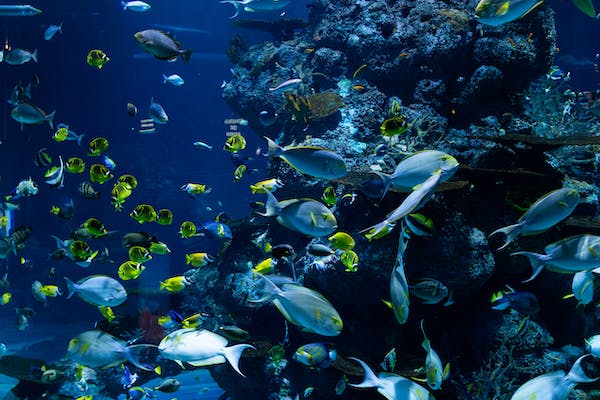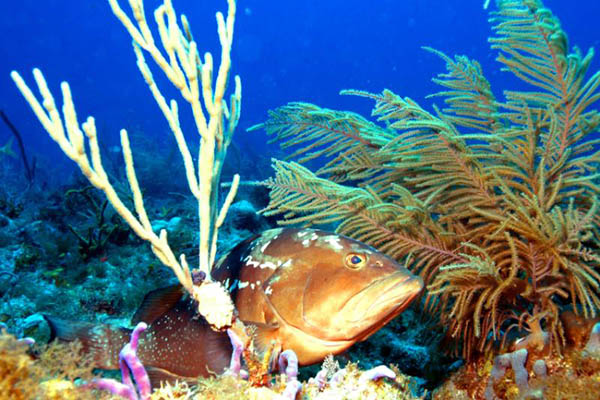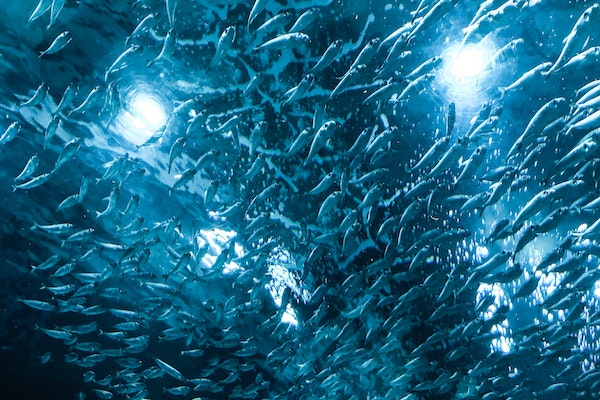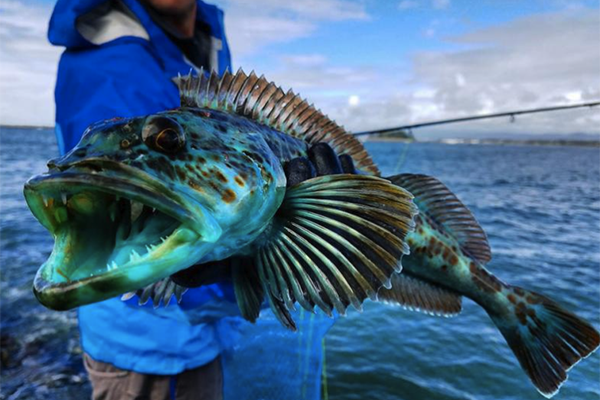New global model highlights regions where extreme temperatures are likely to suffer harmful effects from climate change

A new approach to examining the effects of climate change on marine ecosystems may provide a more accurate understanding of climate change responses – and predictions for future consequences – according to new research.
The study, which was published in the Annual Review of Ecology, Evolution, and Systematics, highlights the interplay between the trend of climate warming and the fluctuations in local temperature. These two properties cause atypically warm events, such as marine heatwaves, to occur with increasing frequency and magnitude. However, the interaction between the steadily warming climate and the spikes in local temperatures tends to be “underappreciated.”
“Climate change studies often focus on the trend of global warming,” Jon Witman, study co-author and a professor of biology at Brown University. “But organisms in the ocean are also experiencing temperature fluctuations, and that’s less studied and therefore less understood. What we’re trying to do is to add more reality into ocean climate change studies by considering both the smooth, upward trend of climate warming as well as the variability on top of that trend.”
The study proposes a new approach to understanding and modeling the effects of marine climate change, with suggestions for future research.
Witman referred to coral as an example that illustrates the need for a new approach. While an organism like coral is already trying to adapt to the trend of rising temperatures, it then endures a heat wave, which causes a large and sudden spike in temperature.
Temperature spikes tend to lead to coral bleaching, which is when metabolically stressed corals expel the beneficial microscopic algae living within them and turn white. If the temperature stays high and algae are unable to return to their host coral, the bleached coral will die. Heat waves in the Mediterranean have led to an increase in coral bleaching and the death of corals and sea fans.
According to Wittman, extreme events, such as marine heatwaves, may alter or damage marine ecosystems in ways that leave them more vulnerable to both progressive climate change as well as the next temperature fluctuation. A more realistic model may help scientists better identify areas where coral is more likely to die off in an extreme event, leaving coral-dependent organisms at risk over time.
In other cases, temperature variability can lead to an opposite response in the affected organism: an ability to acclimatize or adapt to temperature extremes, depending on their frequency and intensity. These responses to variable events like heat waves compound and are compounded by the effects caused by rapidly and steadily increasing ocean temperatures.
Are aquaculture and fisheries resilient enough to withstand climate change?
In the study, the researchers considered how organisms and communities adapt or adjust to both smooth trends and variable changes, and then reviewed processes that influence the rate at which marine communities adjust to changes in their physical environment – as well as those processes that might hamper adaption or acclimatization. The researchers stressed that all these factors “illustrate why it’s key to consider both types of change when studying marine climates.”
“If we just study how organisms respond to the smooth trend, we miss all the variability, which is driving ecological change,” Witman said. “It’s not just a matter of worsening physiological stress over time; there are also variable events that have their own ripple effects.”
In the paper, the researchers created a global model that shows the variability in temperature relative to trend, highlighting regions where extreme temperatures are likely to have particularly deleterious effects. In the areas of the Gulf of Maine, the Caribbean Sea and the Mediterranean Sea, there are high probabilities of exceptional warming events and “ecological surprises.” Research shows that key foundation species in these regions, such kelp and corals, have already experienced substantial climate-related changes.
“These areas, especially, warrant investigation to improve our understanding of what’s going to happen in the future – as well as our conception of what we’re calling, ‘the new ocean,’” Witman said.
Now that you've reached the end of the article ...
… please consider supporting GSA’s mission to advance responsible seafood practices through education, advocacy and third-party assurances. The Advocate aims to document the evolution of responsible seafood practices and share the expansive knowledge of our vast network of contributors.
By becoming a Global Seafood Alliance member, you’re ensuring that all of the pre-competitive work we do through member benefits, resources and events can continue. Individual membership costs just $50 a year.
Not a GSA member? Join us.
Author
-
Responsible Seafood Advocate
[103,114,111,46,100,111,111,102,97,101,115,108,97,98,111,108,103,64,114,111,116,105,100,101]
Tagged With
Related Posts

Fisheries
Which fish species in the Gulf of Mexico and South Atlantic are most vulnerable to climate change?
Certain fish species in the Gulf of Mexico and South Atlantic may be more vulnerable or resilient to climate change than others.

Responsibility
Study: Global warming above 2 degrees-C will lead to ‘irreversible loss in marine ecosystem habitability’
CSIRO determines that global warming above 2 degrees-C will decrease viable ocean habitats and will affect fishing grounds and productivity.

Fisheries
Some fish species are shrinking. Is global warming to blame?
Some fish species are shrinking but future research must determine if overfishing, global warming and food availability are responsible.

Fisheries
Study: Marine heat waves deep underwater persist longer
A NOAA study finds marine heat waves can occur with little evidence of ocean warming at the surface, which impacts fisheries management.



